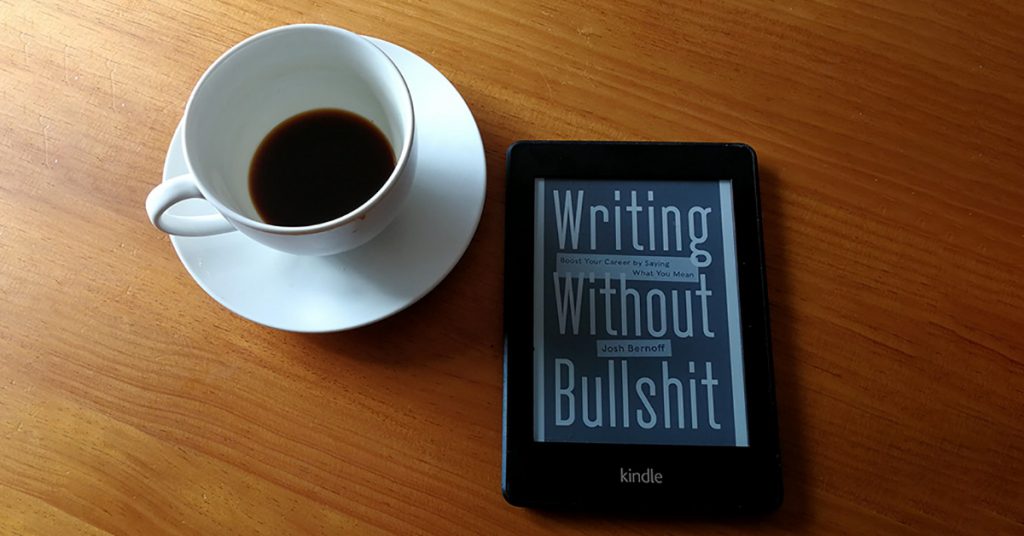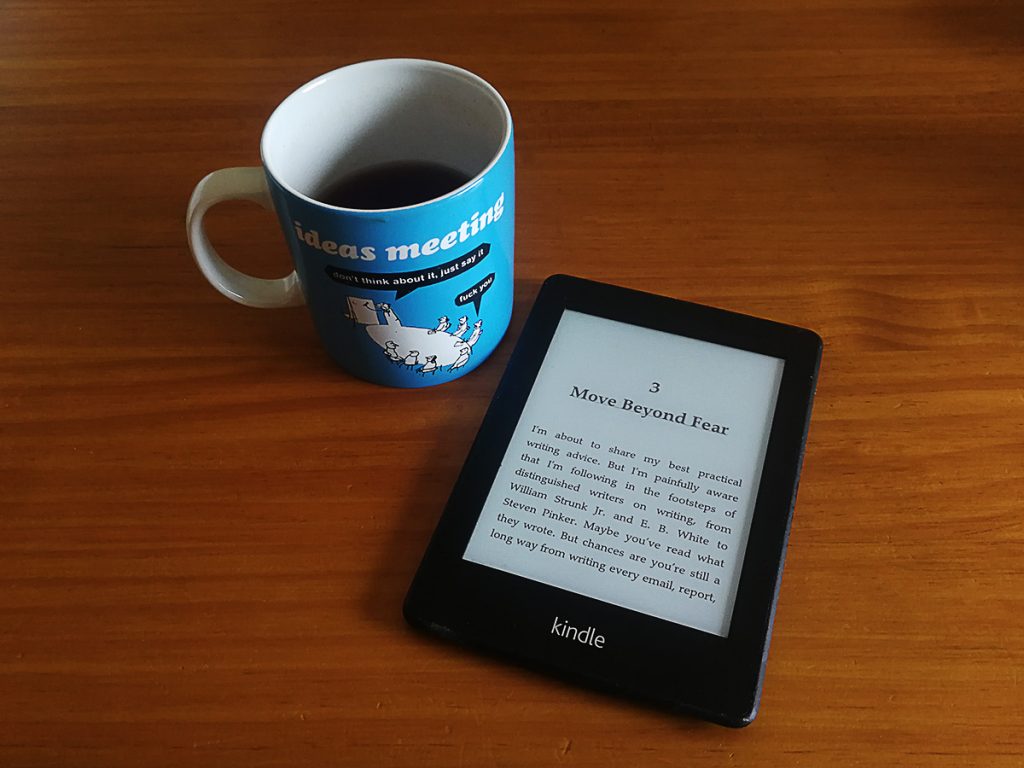
The world is drowning in bullshit. Unfortunately, those of us who are paid to write are contributing to the problem.
Each day we find new ways to suffocate our fellow humans with an execrable tidal wave of bland, corporate, convoluted nothing-speak.
We write to obfuscate rather than communicate. I am convinced we do so because most of us want to mask the fact we do not believe what we write. It is easier for us to equivocate than commit to an idea or position. And our audience suffers for our cowardice as they try to parse what the f___ it is we are trying to say.
Josh Bernoff, the author of Writing Without Bullshit: Boost Your Career by Saying What You Mean, uses less incendiary language than me to identify the problem. He states: “In business, fear generates bad writing habits.”

Josh plainly (and kindly) explains why fear harms our writing:
Each of us would prefer to write with integrity rather than out of fear. We want to get a reputation for telling the truth, not hiding it. But while integrity is in our hearts, fear poisons what we write. Fear destroys clarity and muddies up our writing. You cannot change how you write until you acknowledge it.
Bernoff, 2016
Writing Without Bullshit is packed with practical writing advice to help us communicate with clarity. Chapters with straightforward titles such as: Purge Passive Voice, Replace Jargon, and Be Direct provide clear direction on how to write lucidly.
My favourite section is where Josh provides a golden rule to follow when writing. You must treat your reader’s time as more valuable than your own. Imagine if each word we insert into an email or blog post costs us $10. We would soon learn the value of brevity and clarity!
I recommend Writing Without Bullshit: Boost Your Career by Saying What You Mean to anyone who wants their writing* to transcend the banal and confusing noise that surrounds us.
If you would rather not improve your writing skills to communicate clearly, I sympathize. Bullshit appears to be a growth industry, so why change?
*Note: You might not write articles or reports, but it is likely you are still paid to write. The humble email or Slack message are opportunities for a skilled writer to cut through the noise and communicate clearly.

What a well-written and clear review! Thanks.
Thank you, Josh. Your book is indispensable.